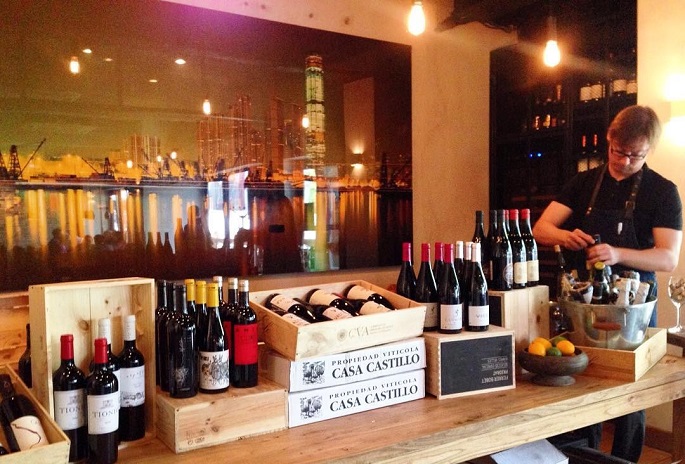Cu Ju Moroccan Bistrot and Rummery and Mosto have been thriving well for the past years in the urban jungle that is Beijing, offering the Chinese--and people anywhere--something they cannot and would not want to resist: good food.
Cu Ju in Dongcheng District opened on June 8, 2012 and prides itself “as currently the sole purveyors of authentic Moroccan food in Beijing,” according to its website.
The online edition of New-York-based Travel + Leisure described Cu Ju as “at once a ‘rummery,’ a sports bar and a Moroccan restaurant--all in the guise of a cozy hutong bar.”
It all work because of “the considerable charm of founder Badr Benjelloun.”
Kyle Mullin, the director of content marketing for The Beijinger, asked Benjelloun about his management style.
“Telling staff what I expect and how I expect things. Making sure customers get more than what they pay for,” said Benjelloun, who came all the way from Casablanca, Morocco.
He added: “If everything else fails, there’s nothing a number of rum shots won’t fix.”
Serving lunch and dinner to hungry shoppers, among others, in Sanlitun’s Mediterranean-style shopping establishment, Nali Patio in Chaoyang District since 2008, Mosto identifies itself as a casual fine dining restaurant.
Mosto “offers inventive, exciting contemporary food with a South American touch,” according to The Beijinger.
Margaux Schreurs, the editor of The Beijinger, asked Mosto Group’s general manager Alex Molina on how he strikes a balance between drawing Chinese and foreign patrons.
“We try for our restaurants to be very honest and straightforward, so it is not that they are particularly appealing to Chinese or Westerners. We do try to make our restaurants friendly in case a Chinese customer is having this experience for the first time,” said Molina, who came to China in 2006 from Colombia.
As it is not all about food when it comes to dining experience, Molina knows what music can do in a place and prepares a playlist.
He said: “I just sit for two or three days and just work on it. You listen to a lot of crap music to get to a good song, hopefully!”
For Sarah Ting-Ting Hou, a dining columnist at City Weekend, Mosto has been consistent in delivering an array of delicious meals.
“After five years, the a la carte menu still has rustic classics like foie gras risotto and chicken corn soup, but adds new appetizers and charcuterie, a wider variety of grilled meats and new mains destined to become standout classics,” said Ting-Ting in a Nov. 2014 review.
Ting-Ting, who also works as the operations director of Juice by Melissa, a café at Beijing’s Dongzhimen offering a variety of organic cold-pressed juices, praised the salmon sashimi and said that it’s an “example of Chef Daniel Urdaneta’s personal touch.”
The cazuela, a seafood stew of clams, mussels, prawns and sea bass, “speaks volumes in flavor and style.”
Mosto, Moka Bros. (“healthy fast casual dining”) and MODO Urban Deli (“casual dining and catering") make up the Mosto Group.
From April 3-7, Mosto’s pop-up store will sell “some of the greatest and hippest” Spanish wines priced at 200 yuan to 300 yuan per bottle, reported The Beijinger.
Eminent American wine critic Robert Parker recommended “most” of the wines to be sold.
Molina said that it’s not easy to open a restaurant in Beijing, according to the Global Times.
He added that veteran restaurant managers and accomplished chefs from abroad, who are also eyeing the city for their own restaurants, add to the competition.



























